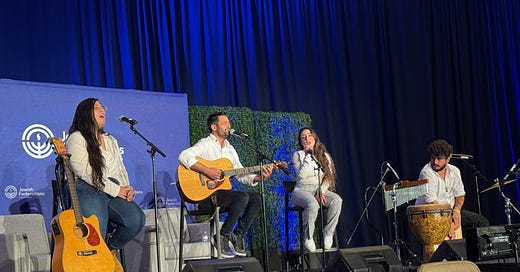We Sing
Notes from the Jewish Federation of North America's Fly-In Week
It is the middle of the night, and I am sitting in bed in the Marriott Marquis in Washington, D.C. thinking about music.
This may come as little suprise to those who know me, as I am a lifelong singer. I am not thinking about how I make music, however. I am thinking about how music made me. I am thinking about how music defines the Jewish people.
This …
Keep reading with a 7-day free trial
Subscribe to Life Derailed to keep reading this post and get 7 days of free access to the full post archives.




